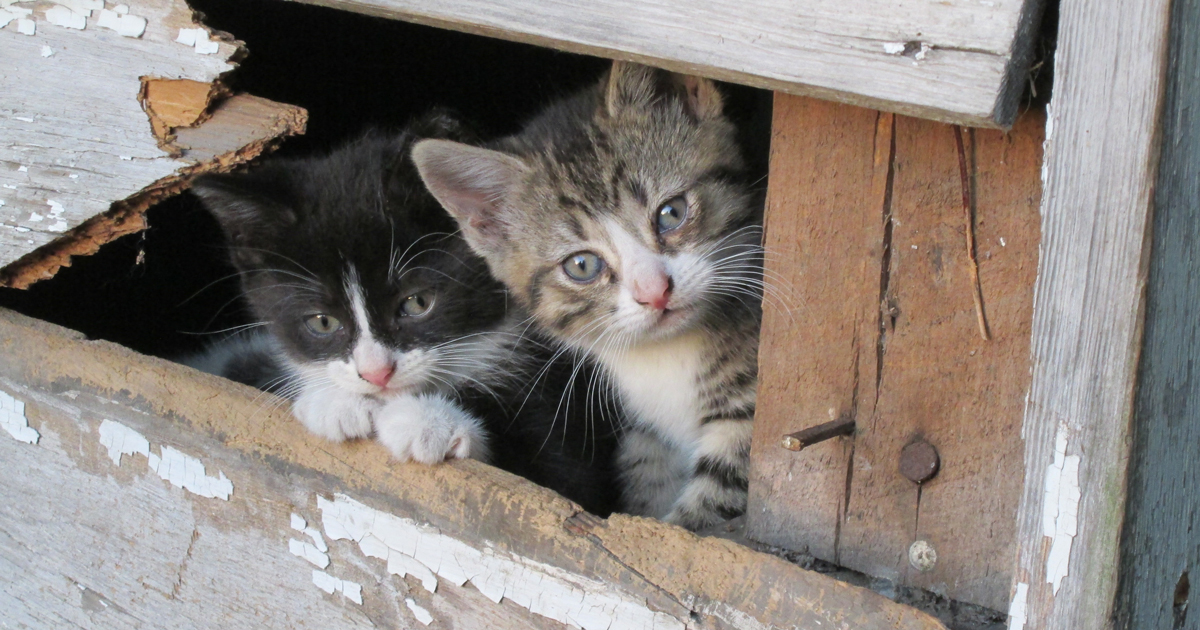I thought now would be a good time for a brief reprise on my series about ethical dilemmas involving animals, and not because I like the pun in the title.
Okay, a bit because of that…
In the UK and US, at least, we regard the neutering of canine and feline patients as routine (as routine as removing some of your patient’s organs can be, at least), but that isn’t the case across the world. In many countries – notably those in Northern Europe – neutering is considered an unnecessary mutilation and a serious ethical issue, akin to the way many of us feel about tail docking and dew claw removal here at home.
Why the difference? Is it merely cultural? Who is right? Are we causing rather than reducing suffering with our blasé attitude to extracting our pets’ internal organs?
Mutilation
Mutilation is a pretty emotive term, so let’s look at the dictionary definition of it (according to Merriam-Webster): “Mutilation: an act or instance of destroying, removing, or severely damaging a limb or other body part of a person or animal.”
That’s a hard one to argue against… by the dictionary definition, neutering is certainly a mutilation (as are many surgical procedures, including tumour removals). Perhaps it’s easier to focus on the other part: is neutering necessary?
To me, the answer to that question depends on who is asking it. If neutering is necessary, then who is it necessary for?
For instance, do we think neutering a patient is in that patient’s best interests? In my opinion, that’s not nearly as clear cut an answer as we (by which I mean in the UK and US) immediately assume. There are health benefits to castration and spaying, but they are not as simple as they might appear…
Pyos and cons?
I suspect most of you reading this have seen patients suffer greatly with pyometritis, and a few of you will even have seen patients die from it. It’s hard to feel spaying is unjustified after watching the misery of a pyo first-hand. However, we also all know neutering increases urinary incontinence in bitches, and while there are a number of effective treatments for this nowadays, they are lifelong and not especially cheap.
I don’t think it’s a controversial statement to suggest some bitches are likely to have been euthanised because of their incontinence, or the financial issues associated with them. Is that more or less than the number that would have died of pyometritis if they weren’t neutered? I suspect probably less, but I have no way of knowing for sure.
How about the amount of suffering that patients with mammary tumour experience, compared with the suffering associated with spaying or complications arising from it? Again, probably less, but we can’t know.
Avoiding the aggro
How about dog castration? Opinions vary greatly on the benefits or disadvantages of doing this for aggression, and it could be argued that reducing aggression is not for the benefit of the patient itself, but those around it (except that a persistently aggressive dog is more likely to be euthanised for its behaviour).
The health benefits to the patient are less clear than in bitches – yes, of course the risk of testicular cancer is eliminated, as well as some prostatic disease, but plenty of studies1 show castrated males are actually more prone to a number of prostate cancers – particularly the highly aggressive transitional carcinoma.
Being blunt, as a dog or a human, you’d much rather be diagnosed with a testicular seminoma than a prostatic transitional cell carcinoma.
A controversial opinion
That was a rather long-winded way of saying that the health benefits of neutering are, at the very least, slightly controversial. Even if they weren’t, however, the idea of removing a part of a patient because it has the potential to go wrong is something that in other circumstances (like, yes, tail docking or dew claw removal), we generally consider unethical.
Humans don’t routinely have their appendixes removed, despite that appendicitis is a killer; and although tonsillectomies had their day, they still weren’t routinely carried out on the human population. For me (as with, I suspect, many people), the thought of having part of my body forcibly (if relatively painlessly) removed because it might or might not kill me at some point in my future actually fills me with a sense of dread and slight horror.
To put it more bluntly: I’m unlikely to use my testicles for anything useful for the rest of my life, and removing them might actually increase my life expectancy, but I’m not planning to get myself castrated any time soon.
A necessary evil?
So, is neutering necessary for the patient? From my perspective, that’s a very difficult argument to make honestly.
If it were possible for animals to be given the choice, how many of them would voluntarily sign-up for a major surgical procedure for possibly mixed health benefits? My suspicion is it would be roughly the same number of humans: very, very few.
Here’s a different question: is it necessary for the species as a whole?
That’s a whole different kettle of potatoes.

The cat castrate conundrum
You may have noticed I’ve been rather silent about our feline friends in the discussion so far. That is because even in those countries where neutering is considered an unnecessary mutilation, most cats have their reproductive capacity removed – and it doesn’t take a great deal of imagination to see why.
I hope it also isn’t a controversial statement to suggest that allowing a colony of cats living in human society to reproduce as much as they generally like to (which is even more than humans) will undoubtedly cause, somewhere along the line, suffering and death – not to mention the fact the majority of suffering and dying will be performed by kittens.
In Germany, where resistance is high to neutering, the government has recently told owners of entire males that, to allow them outdoors, they must either have them castrated or put them on a leash2.
Low point
Although the domestic and reproductive arrangements of dogs are slightly different (at least in the UK), which might lessen the impact of unneutered dogs, rescue centres across the country remain as full as they have been for years.
In my career as a vet, my very lowest moments have been as a consequence of personally reducing the surplus stray canine population, and it has made me rather a fundamentalist on the topic of dog breeding, as well as given me a number of nightmares and sleepless nights.
I hope that, through this blog, I have made it clear routine neutering is, at the very least, much more ethically problematic than we generally admit in our consulting rooms.
My two-penneth
For what it’s worth, my own opinion is that it isn’t ethically justifiable to neuter pets when considering their health and welfare alone.
However, I do believe neutering is justifiable to prevent the broader suffering of the species, and I try to tell myself that it is part of the social contract our pets have (unwillingly) joined – we offer them free food, shelter and a much nicer life than any organism could expect in the wild, but as part-payment for becoming part of our society, our pets must surrender their reproductive freedom.
For me (as ever) it comes down to suffering: the suffering caused by routine neutering is, in my judgement, less than would be caused to and by even more stray or unwanted cats and dogs than we have at the moment. I can’t say I’m entirely happy about it – no ethical dilemma has a simple or entirely satisfying solution – but I am, at least, comfortable with my position.
I’d be interested to hear your thoughts.

Leave a Reply